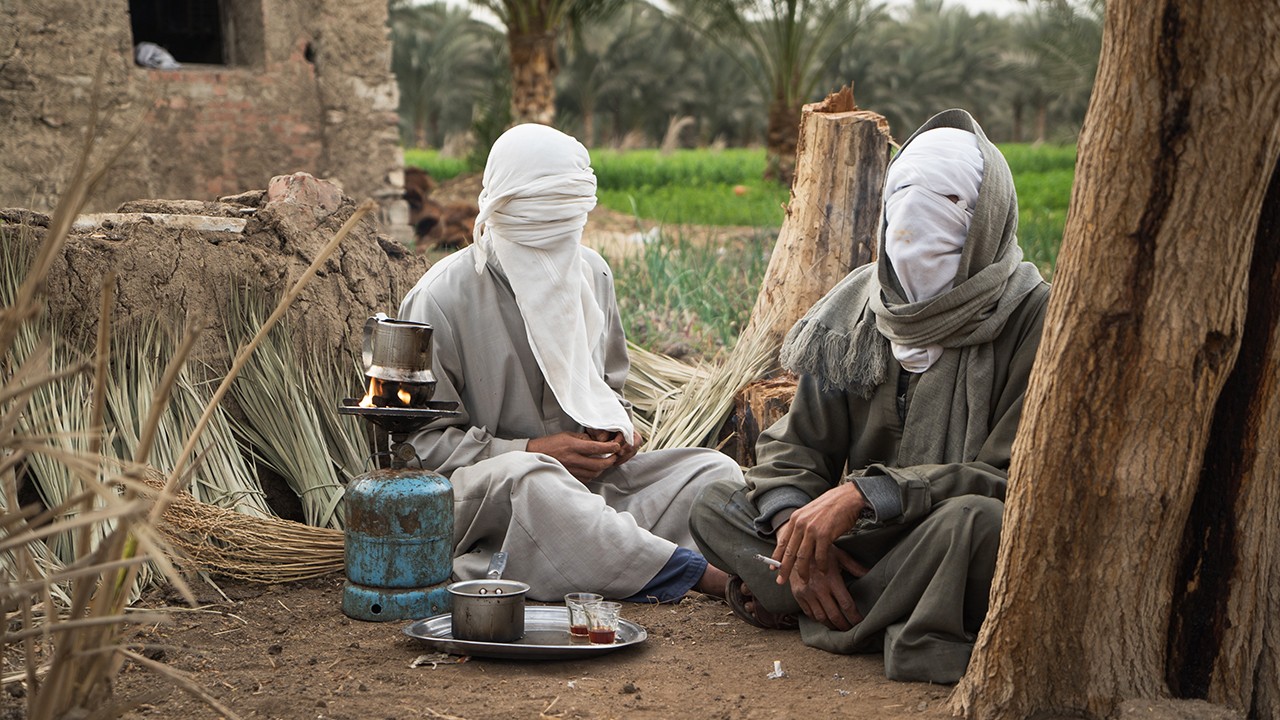President Abdel Fattah al-Sisi turned to familiar tactics to quell rare protests that rocked his country over the weekend: tear gas, mass arrests, and the shutdown of parts of the internet.Hundreds of Egyptians were arrested as Sisi’s government rushed to contain the spread of anti-government sentiment taking hold across the country.In scenes reminiscent of the 2011 Arab Spring revolt, Egyptians flooded Tahrir Square in Cairo and several other major cities on Friday, calling for Sisi to step down. Protesters in Cairo, Alexandria, Suez and Damietta could be seen chanting "The people demand the fall of the regime,” “Get out, Sisi,” and “Rise up, fear not, Sisi must go.” Videos of the demonstrations spread rapidly on social media.Sisi has remained silent thus far, declining to comment on the protests. Instead, he’s relied on the police and state-run media to do his bidding.As if mass arrests and a media campaign weren’t enough, the government, which already heavily censors independent media, moved to block access to Facebook Messenger, according to Netblocks, a group that tracks internet outages around the globe. The changes took effect Sunday and remained in place Monday.Government sensors also targeted Facebook’s image server, limiting protesters' ability to share videos of the demonstrations, and Western outlets like BBC News and the U.S.-backed Alhurra News.The head of the state-owned Egyptian media regulator told the BBC he was not aware of the blocks but said it was “likely" the news websites were suspended over “inaccurate” coverage of Friday’s protests.Despite his efforts to downplay Ali’s videos and the protests they're inspiring, Sisi may soon find the subject unavoidable.Read: Egyptians Keep Sharing These Videos About Government Corruption and There's Nothing Sisi Can Do About ItAfter the Friday-night protests, Ali posted another video on Saturday, calling on Egyptians to join a “million-man march” next Friday and to fill all “major squares” of the country.Sisi and the government are likely to crack down hard on any such demonstration, but experts say that history has shown that such repressive tactics rarely work in the long run.“If there is one lesson Sisi and his government should learn from these protests, it's that a seven-year-long nationwide crackdown and oppression has not managed to stifle Egyptian people's aspirations to democracy and dignity and freedom,” said Amr Magdi, a researcher at Human Rights Watch. Cover: Protesters shout slogans during a rare anti-government protest in downtown Cairo. Photo by: Oliver Weiken/picture-alliance/dpa/AP Images
Cover: Protesters shout slogans during a rare anti-government protest in downtown Cairo. Photo by: Oliver Weiken/picture-alliance/dpa/AP Images
Advertisement
Public protests have become extremely rare in Egypt since Sisi took power in a military coup in 2013. The former military general has repeatedly been accused of using mass arrests and torture as part of a nationwide effort to stifle public dissent.But Egyptians have shown a renewed willingness to voice their public anger toward Sisi. The latest wave of protests can be linked back to ex-army contractor Mohamed Ali, who has alleged corruption at the highest levels of the Egyptian government and military.
Sisi has tried to downplay the allegations, turning to state-run media and government-controlled newspapers, as well as online supporters to deflect and deny Ali’s charges. But it’s had little effect.Now, activists and human rights watchdogs are urging the international community to pay close attention to what’s happening in Egypt, particularly as Sisi takes part in the U.N. General Assembly in New York this week.“The protests are extremely significant because they showed the limitations of repressive policies,” Hussein Baoumi, a human rights researcher with Amnesty International, told VICE News. “This should send a very clear message to the Egyptian authorities, but also to the international community, that repression cannot be the answer to Egypt's problems.”Ali’s videos have captured the attention of millions of Egyptians who have suffered under significant financial hardship in recent years. The protests, activists say, are a sign that people are no longer willing to accept austerity while their leaders build lavish palaces and opulent hotels.“The protests are extremely significant because they showed the limitations of repressive policies”
Advertisement
The crackdown
The authorities have not said how many people were arrested over the weekend, but the Egyptian Centre for Economic and Social Rights (ECRF) estimates that up to 365 protesters were detained.The people arrested included women, children, journalists covering the unrest, and lawyers. Among them was the award-winning human rights lawyer Mahienour el-Massry, who was arrested after she left the State Security Prosecutor’s office in Cairo, where she was dealing with several of her own clients who'd been arrested.Read: Egyptians Are Furious Over Corruption Videos — and Demanding Sisi “Get Out”State-controlled media, meanwhile, has tried to downplay the significance of the weekend’s demonstrations. One presenter on state-controlled TV station even went so far as to threaten protesters with arrests, warning: “Tahrir Square is filled with CCTV. If you weren’t arrested yesterday, you will be today.”And while it did not mention the protests directly, the government’s foreign media accreditation body released a thinly veiled threat late Saturday, warning international journalists that their reporting of events “should not be exaggerated.”
Shutting down social media
Advertisement

